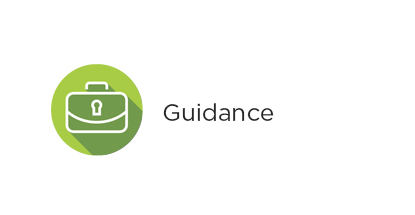
From CPABC’s Professional Conduct Department

As a core principle of GAAP,1 objectivity requires that accounting be recorded based on facts and evidence, not opinions and feelings. For any given transaction, there is a general expectation that any reasonable observer, looking at the evidence, would arrive at the same or similar values and apply the same or similar accounting treatment.
Along with the other core principles of GAAP,2 objectivity helps ensure that the accounting profession has the public’s trust.
What are the rules for maintaining professional objectivity?
Objectivity is required of every CPA member and student,3 regardless of sector.
The concept of accounting objectivity in GAAP is closely related to the concept of behavioural objectivity in the CPABC Code of Professional Conduct (CPA Code). As described in Rule 202.2 (Objectivity) of the CPA Code, objectivity requires that “registrants”4 not allow their “professional or business judgment to be compromised by bias, conflict of interest or the undue influence of others.” Decisions must, therefore, be based on the weight of the evidence at hand.
As noted in its preamble, the CPA Code “is derived from five fundamental principles of ethics.” In addition to objectivity, these principles are professional behaviour, integrity and due care, professional competence, and confidentiality. To each of these five concepts, the CPA Code applies the criterion of whether a reasonable observer would conclude that a specific circumstance poses an unacceptable threat to a member’s or student’s objectivity.
What gets our members in trouble?
The professional conduct department at CPABC has handled several significant complaints about members’ objectivity. These included instances where:5
- A member performed a specified-procedures trust report for a lawyer after having already performed bookkeeping for the same individual. In this case, the member compromised their objectivity by giving an opinion on the integrity and accuracy of their own work (“self-review”).
- A registered firm that had gone through several mergers and reorganizations over the years failed to rotate the lead engagement partner on one audit engagement for 10 years. Rule 204.4(20) (Specific Prohibitions, Assurance and Specified Auditing Procedures Engagements — Long association of senior personnel with a reporting issuer or listed entity audit client) limits the length of time a lead engagement partner or engagement quality control reviewer may be involved with a reporting issuer or listed entity to seven years. Thus, it was determined in this case that the engagement partner’s objectivity had been compromised.
- An auditor succumbed to pressure from a client, a charity, to offset accounts payable against the cash balances at year-end. This resulted in a material understatement of the charity’s cash and accounts payable balance at year-end (caused by the fact that payment cheques had been dated at year-end but not released until later). In this case, the auditor compromised both the integrity of the financial statements and their own objectivity by accepting the improper accounting treatment.
- A member audited the financial return of a political candidate. Although the member was not involved in the candidate’s campaign, another partner at their firm served as the candidate’s fundraising chair. Due to the close business relationship between the two partners, the auditor’s objectivity came into question.
- A member acted as the accountant for an agricultural venture owned equally by two sibling partners. When a dispute arose between them, the member continued to act for the partnership but took instructions from and provided information to one sibling only.
In each of these instances, CPABC’s Investigation Committee found that the members or firms involved had breached the objectivity requirements of the CPA Code and the Investigation Committee recommended a variety of sanctions.
Are objectivity and independence the same principle?
In several of the examples above, the firms or members in question violated Rule 204 – Independence of the CPA Code, which covers specific prohibitions for assurance and specified auditing procedures engagements.
As per section 12 (Practice of public accounting – additional requirements) of the guidance to Rule 202 in the CPA Code: “The requirement to be objective is not the same as the requirement to be independent pursuant to Rule 204. Objectivity is a state of mind. Independence is not only a state of mind; it also includes the appearance of independence, in the view of a reasonable observer. It is the reasonable observer test that distinguishes ‘independence’ from ‘objectivity’ and that gives the public the necessary confidence that the registrant can express a conclusion without bias, conflict of interest or the undue influence of others.”
A note about advocacy and valuation services
Advocacy
Section 8 (Objectivity and advocacy) of the guidance to Rule 202 in the CPA Code states: “The requirement for an objective state of mind does not preclude a registrant from acting in an advocacy role for a client or from working to advance the best interests of an employer.” When acting as an advocate, however, the member “must consider the ability to effectively advocate the client’s or employer’s position, while still maintaining objectivity and integrity. It may be possible to do so when the advocacy role is apparent in the circumstances and the position being advocated is supportable.” 6
The guidance cautions, however, that “circumstances may arise which stretch the bounds of performance standards, go beyond sound and reasonable professional or commercial practice or compromise credibility. Such circumstances may pose an unacceptable risk of impairing the reputation of the registrant, client and/or employer. In those circumstances, the registrant should consider whether it is appropriate to perform the service.”
Valuation
CPAs often provide business valuation services. When working with a client on a business valuation, a member may be asked to evaluate, or recommend an advantageous transaction with, another company. If the member had a role in preparing the financial statements of the other company, they should beware the dangers of self-review.
Assess your objectivity on a continual basis
Because circumstances can change as engagements evolve, section 13 (Continuing assessment of objectivity and integrity) of the guidance to Rule 202 of the CPA Code recommends that registrants continually assess and manage any risks to their objectivity and integrity. The guidance notes: “In the absence of specific rules, standards or guidance, a registrant should consider whether another registrant, without the relationships or influence that have put objectivity or integrity at risk, would have come to the same decision with access to the same information.”
Do you need guidance?
CPABC has professional standards advisors who are here to help you understand the CPA Code. All discussions are confidential, non-binding, and unofficial. Contact the advisors by email at professionaladvisory@bccpa.ca.
In complex situations, you may also want to consider obtaining independent legal counsel. The Chartered Professional Accountants Act, CPABC Bylaws, CPABC Bylaw Regulations, and CPABC Code of Professional Conduct can be accessed online.
Comments or questions about this article?
Contact the professional conduct department at professionalconduct@bccpa.ca.
Footnotes
- Generally accepted accounting principles.
- While there is some debate in professional literature about the full spectrum of accounting principles, most definitions include at least the principles of full disclosure, going concern, accrual basis, materiality, consistency, and conservatism.
- Student” refers to candidates in the CPA Professional Education Program (PEP).
- “Registrants,” as used in the CPA Code, refers to members and students (candidates in PEP). The CPA Code does not apply to students enrolled in the CPA preparatory courses.
- Some facts have been altered to preserve anonymity.
- When acting as an advocate, care should be taken to ensure that such work does not constitute the practice of law.
Rate this Entry
Current rating: 3 yes votes, 0 no votes

